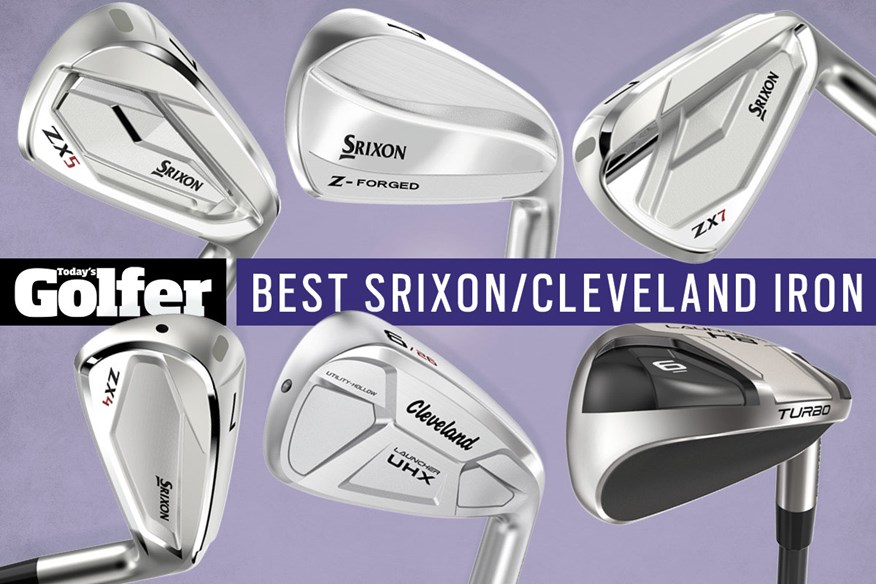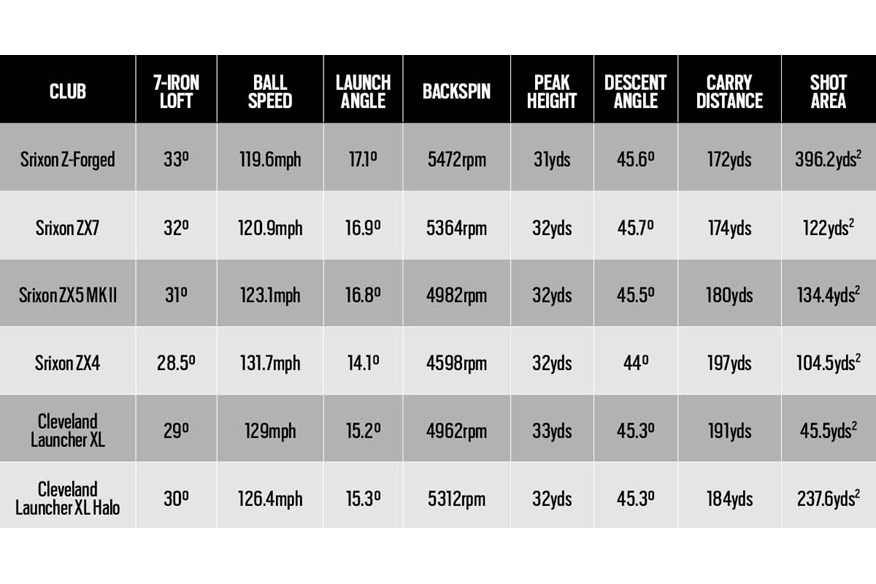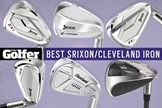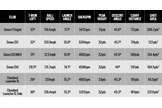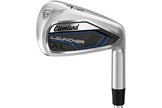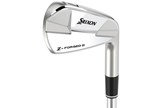Best Srixon & Cleveland Irons 2025: Every model tested to help find you the right iron
Last updated:
Which model is the best Srixon or Cleveland golf iron for your game? Here’s your complete guide to each iron in Srixon and Cleveland’s 2025 line-up, who they are aimed at, and how they performed when tested by our pro.
JUMP TO: Best Srixon & Cleveland Irons | The Data | How We Test | Buying Advice & FAQs
Srixon don’t spend as much on marketing or have as large a market share as some of the bigger brands, but they have been making some of the best golf irons available for quite some time.
Better players in particular tend to love the design, craftmanship and feel delivered by Srixon irons.
Tour pros including Shane Lowry, Brooks Koepka and Hideki Matsuyama use Srixon irons, but Srixon (alongside partner brand Cleveland, especially) also cater to higher handicappers and even beginner golfers. There most recent victor came from JJ Spaun at the 2025 U.S. Open.
The Srixon & Cleveland iron range includes everything from slimline musclebacks aimed at very good golfers all the way to hollow-headed hybrid irons aimed at those who struggle to hit any kind of traditional iron. But which Srixon & Cleveland iron is best for your game? Let’s take a look…
Best Srixon & Cleveland Irons at a glance:
Best Srixon & Cleveland Irons
One of The Best Muscleback Irons of 2025
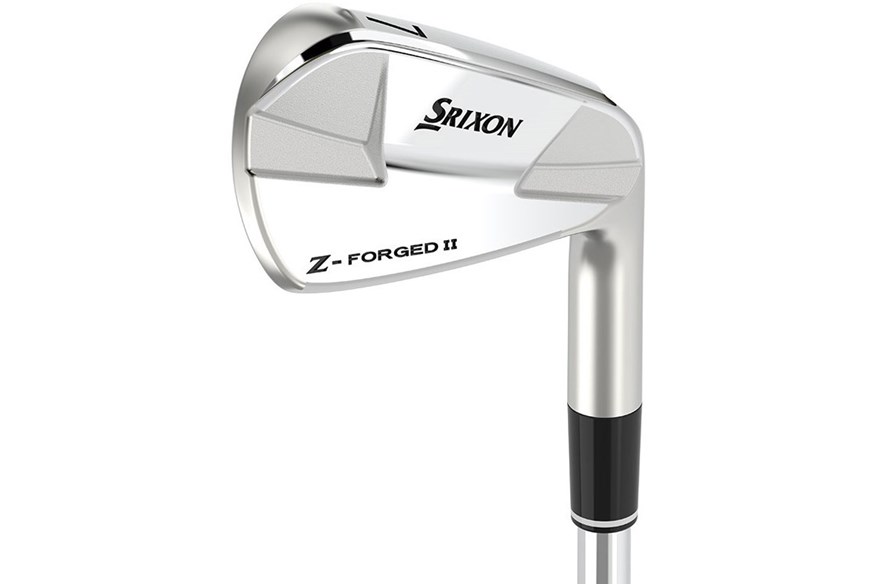

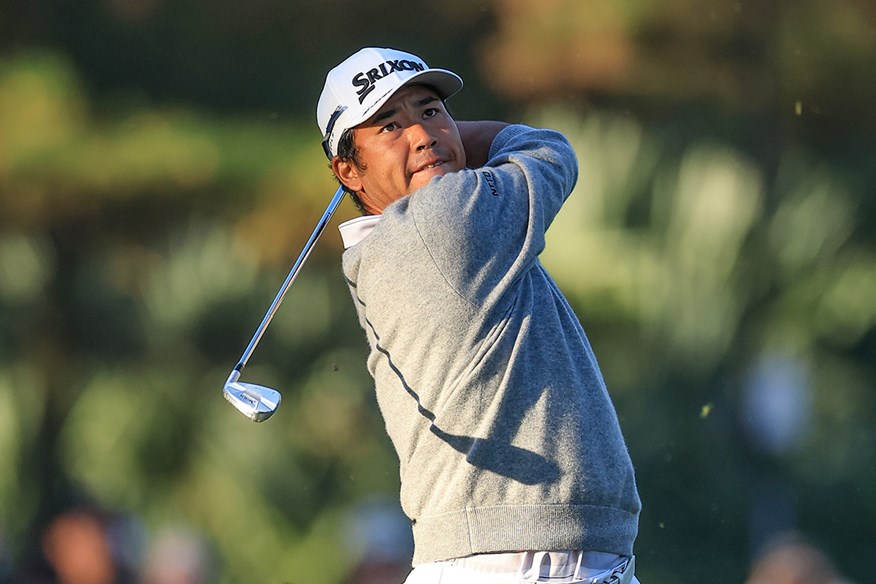
Sometimes, you just have to sit back and enjoy the moment. That’s the feeling Srixon’s Z-Forged II blade conjures up for us – something you can take pleasure in rather than worrying about anything beyond the strike.
While you could make an argument for any MB to be able to do this, we’re particularly enamoured with the Srixon Z-Forged II. There’s some jump to be found in the ball flight as well, with some added distance coming through during our testing, but the real benefit to be found is with Srixon’s VT sole.
The VT Sole can cut into strong ground as well as soft, without getting stuck. This needs to be felt to be believed, but it makes contact much easier in the Srixon iron.
What our tester says:
The shape feels like something of a throwback to some older iron sets, but I’m really taken by the power it seems to have for a muscleback iron. It still feels so soft. I wasn’t expecting to find both of these attributes at the same time in an MB iron.
Data:
Loft 33º | Clubhead Speed 89.8 MPH | Ball Speed 118.5 MPH | Carry 172.1 Yards | Spin 5,378 RPM | Launch 18.5º | Height 32.5 Yards | Descent Angle 46.8º | L-R Dispersion 8.1 Yards
| Set Options | 3-PW |
| Stock Shaft | Nippon NS Pro Modus Tour 120 |
| Stock Grip | Golf Pride Tour Velvet 360 |
| Left Handed | No |
Best Srixon & Cleveland iron for elite players and excellent ball-strikers
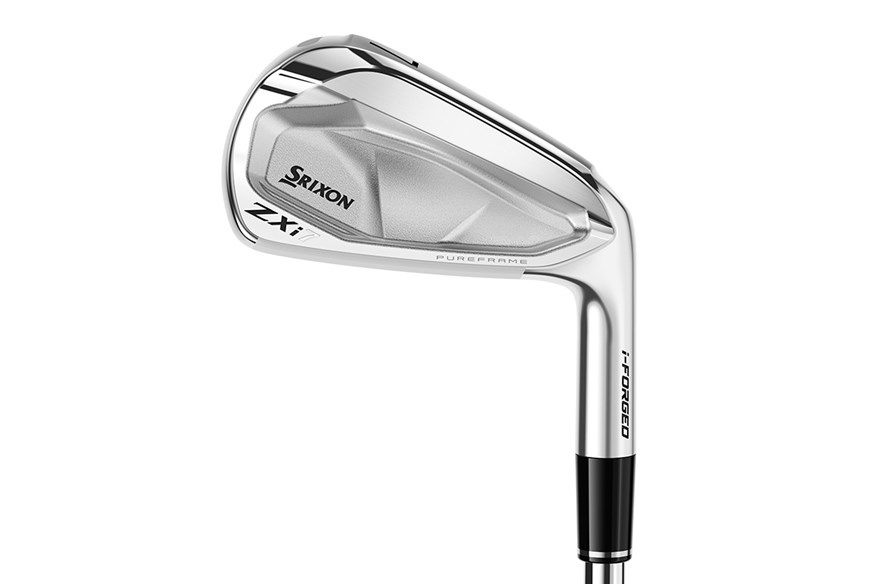

With a 7-iron loft of 32° and no distance-boosting tech packed in, the Srixon ZX7 MKII is one of the best players’ irons out there. The one-piece forged head feels fantastic on pure strikes and gives plenty of feedback on mis-hits.
The ZX7 produced one of the purest, premium feel off the face with our testing, noted by our pro and others.
Unless you’re very strong with your irons, it’s worth considering a combo set with the slightly more forgiving Srixon ZXi5. That would give you the feel and control of the ZXi7 in the shorter irons, with a tiny bit more help in the longer irons of the ZXi5.
VIEW US OFFER
Pros
- Lovely feel
- Looks the business
- High level of spin for stopping power on the green
Cons
- Minimal forgiveness
| Category | Players’ Iron |
| Forgiveness rating | 2/5 |
| Handicap range | 6 and below |
| Construction | Forged from a single piece of 1020 carbon steel |
| 7-iron loft | 32° |
Best Srixon & Cleveland iron for good players who want some extra distance
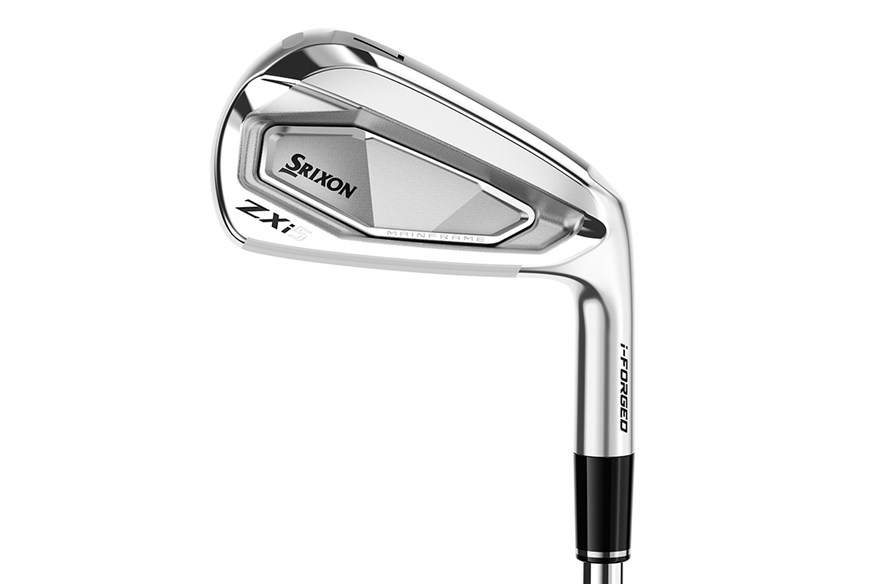

The ZXi5 are one of the best players’ distance irons and will cater to a wide range of golfers, from single-figure handicappers all the way up to fairly high handicaps.
Particularly impressive is how the ZXi5 competes with the likes of the TaylorMade P790, Mizuno JPX925 Forged, and Callaway Ai200 despite having a fairly weak loft for the category.
We noticed a significant jump in carry distance for the ZXi5 in comparison to the ZXi5, yet the descent angle was still premium for holding greens.
If distance is a main focus for you, though, the stronger-lofted Srixon ZXi4 (below) will be worth looking at, as they generate a lot more ball speed and yardage. Again, you can get a combo set to mix and match across the models.
VIEW US OFFER
Pros
- Strong distance
- Excellent stopping power
Cons
- Not for those wanting maximum distance
| Category | Players’ Distance Iron |
| Forgiveness rating | 2.5/5 |
| Handicap range | 6 and above |
| Construction | Forged 1020 carbon steel body with forged SUP10 face |
| 7-iron loft | 31° |
Best Srixon & Cleveland irons for mid-handicappers
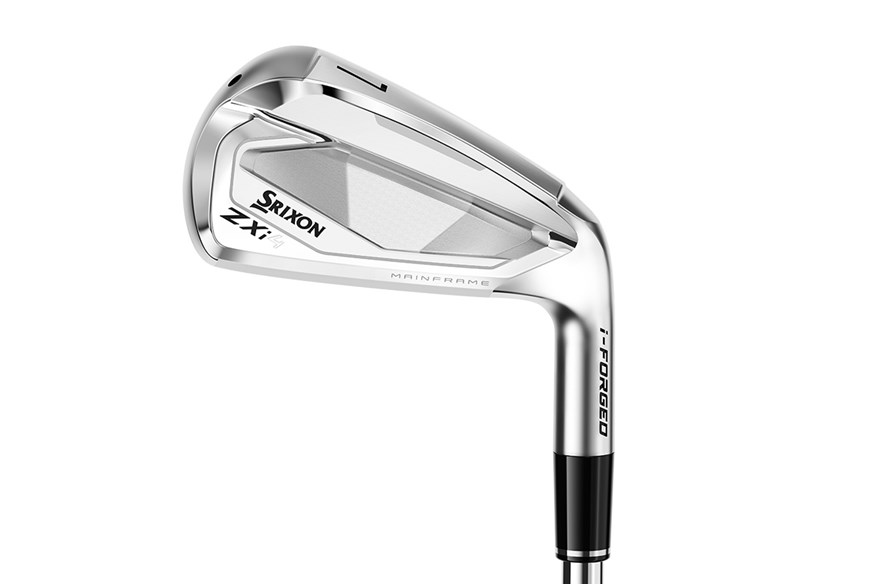

Given the stronger lofts, it’s no surprise that the ZXi4 are the longest Srixon iron in terms of distance. The peak height and descent angle were very similar to the ZXi7 and ZXi5, though, which means you’ll still be able to stop shots quickly on the green.
Perhaps most impressive of all was the ZX4 generating the feel we received across the face, with both our tester and other TG staff claiming that the Srixon ZXi4's are the perfect middle ground for a game improvement iron.
The Srixon ZXi4 are a great option for mid-handicap golfers with a reasonable swing speed and a very solid alternative to the likes of the Ping G440, TaylorMade QI or Callaway Ai300 as one of the best mid-handicap irons.
VIEW US OFFER
Pros
- Strong distances
- Great stopping power
- Plenty of forgiveness
- Nice feel
Cons
- Slow swingers may struggle to launch them given the low lofts
| Category | Mid-Handicap Iron |
| Forgiveness rating | 3.5/5 |
| Handicap range | 12 and above |
| Construction | Cast 431 body with forged HT1770 maraging steel face |
| 7-iron loft | 28.5° |
The Ultimate Game Improvement Iron
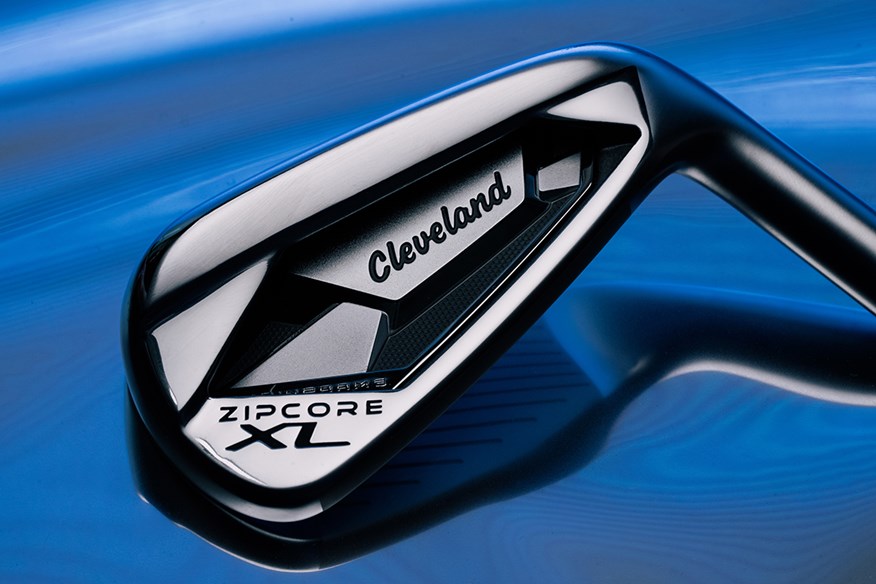

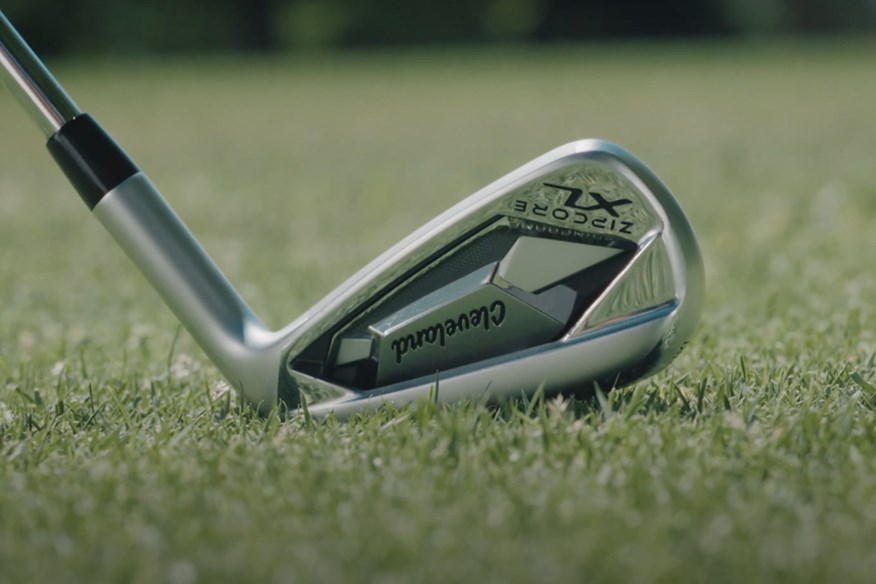
Compared to its sibling company’s irons, the Srixon ZXi family, Cleveland often gets the short end of the stick with golfers today. Once held as one of the most interesting and innovative brands in the game, it generally gets pushed in the direction of the highest handicap or slowest swing speed players for the general public’s opinion (with the exception of the excellent wedge family, like the current line RTZ).
The Zipcore XL is a fantastic move for Srixon/Cleveland in reminding the public they do still know how to make a solid iron set, one that has the recognisable DNA of the Hi-bore history in how easy it is to hit, combined with a pretty reasonable price point to boot.
What our tester says:
I’m not going to shy away from saying I wasn’t expecting to care for this iron, but I’m happy to have been surprised. Yes, the head is a little big, but it’s meant to help out with confidence, so that’s understandable, and there’s actually some good feedback on your strikes, letting you know what you need to work on while still being given some help on those hits.
Data:
Loft 29º | Clubhead Speed 92.6 MPH | Ball Speed 125.7 MPH | Carry 187.4 Yards | Spin 4,877 RPM | Launch 18.8º | Height 37.4 Yards | Descent Angle 48.3º | L-R Dispersion 8.6 Yards
| Set Options | 4-PW, GW, SW |
| Stock Shaft | KBS Tour Lite / UST Mamiya Helium Nanocore |
| Stock Grip | Lamkin Crossline 360 |
| Left Handed | Yes |
Best Srixon & Cleveland iron for high handicappers and beginners
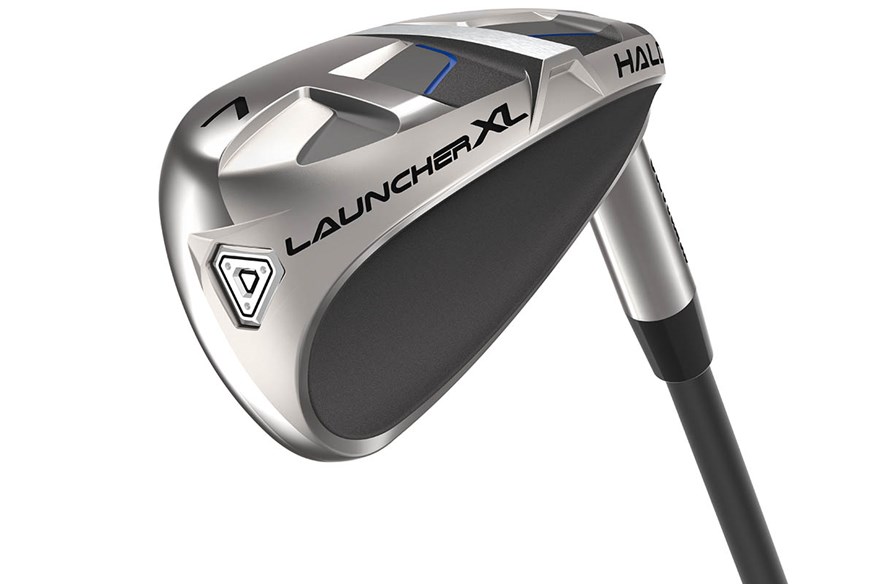

Every time our test pro hits hybrid irons he finishes the session with a smile on his face, and we question why so many of us insist on making the game harder than it needs to be by playing irons above our ability.
The Cleveland XL Halo launches shots nice and high with a decent spin rate, generating a steep descent angle which means shots will stop nicely when they hit the green.
VIEW US OFFER
Pros
- Extremely easy to hit
- Great distances
- Good height and spin to stop shots on the green
Cons
- Not as much distance as the standard Launcher XL irons
| Category | High-Handicap Iron |
| Forgiveness rating | 5/5 |
| Handicap range | 28 and below |
| Construction | Cast hollow body |
| 7-iron loft | 30° |
Launch monitor data: How the best Srixon & Cleveland irons compared
| Make | Model | Loft (º) | Club Speed (mph) | Ball Speed mph) | Carry Distance (yds) | Spin Rate (rpm) | Launch Angle (°) | Peak Height (yds) | Descent Angle (°) | L-R Dispersion |
| Cleveland | Zipcore XL | 29 | 92.6 | 125.7 | 187.4 | 4,877 | 18.8 | 37.4 | 48.3 | 8.6 |
| Srixon | ZXi4 | 28.5 | 91.3 | 124.0 | 186.7 | 4,521 | 17.4 | 33.4 | 45.7 | 6.1 |
| Srixon | ZXi5 | 31 | 90.5 | 122.0 | 182.9 | 4,539 | 17.8 | 32.8 | 45.7 | 10.0 |
| Srixon | ZXi7 | 32 | 89.9 | 118.2 | 172.8 | 5,056 | 18.1 | 31.4 | 46.0 | 12.7 |
| Srixon | Z-Forged II | 33 | 89.8 | 118.5 | 172.1 | 5,378 | 18.5 | 32.5 | 46.8 | 8.1 |
How we tested the best Srixon & Cleveland irons
To test golf equipment, we create a controlled indoor environment at Keele Golf Centre and use a premium tour-level golf ball (the Srixon Z-Star). We collect all the data from every shot hit, using a Foresight GC Quad launch monitor.
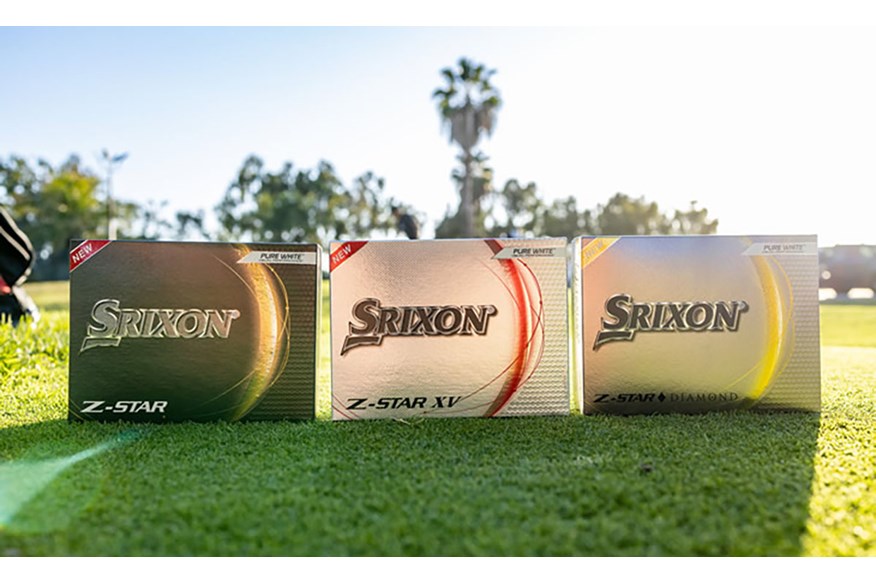
Why do we use a Srixon Z-Star golf ball?
It would be easy to use just one test golf ball brand every year, but that inevitably leads to criticism for being too closely aligned to one manufacturer, especially if that brand’s equipment performs particularly well. To ensure fairness we like to switch manufacturers for the Top Gear test ball each year. For 2023 we’ve used the Srizon Z-Star.
The brand have just revealed their eighth-generation model, and Srixon General Manager Brian Schielke says “finding the right ball for your game is just as important as finding the right irons or driver, it’s the one piece of equipment you use on every single shot”.
Thanks to the previous Z-Star mopping up 31 wins across all tour global tours last year (that’s 15.5% of the wins available) we know the model is trusted by the world’s very best.
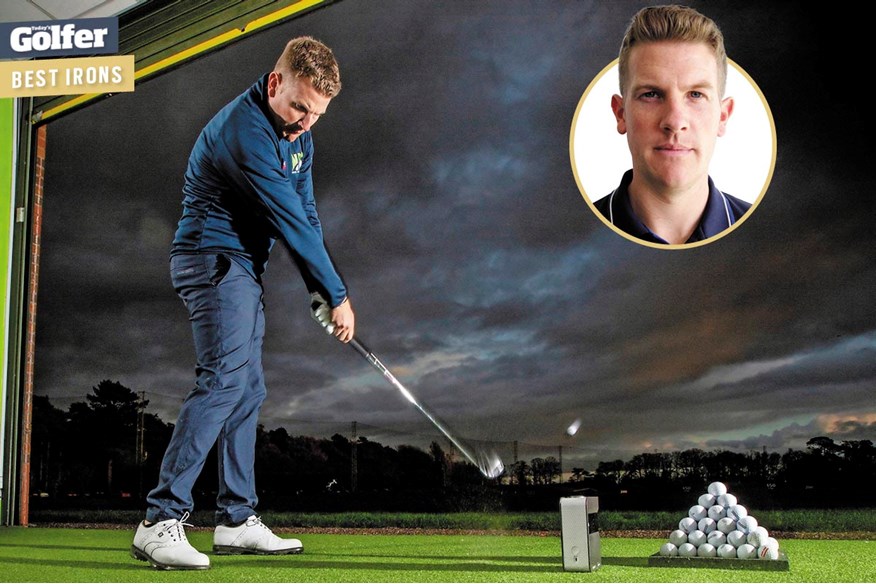
Why do we use a pro tester?
Speak to any golf club engineer about product testing and they all talk about needing a repeatable, reliable strike to offer any sort of valuable comparison. So, whilst we accept not all of the equipment included within our tests was designed for our test pro, what our data shows is a great comparison of how clubs in each particular category differ, which is hugely valuable in helping you narrow your choice as a consumer.
We tested 83 different 7-irons, during which our test pro missed a target green at 170 to 200 yards no more than a dozen times. He got a hole-in-one, lipped out, and hit the flag several times, he also loves hitting golf balls all day long. In short, Neil Wain is the perfect club tester due to his consistency in delivering accurate and reliable comparative data.
We would of course always recommend attending a proper fitting session, to ensure any purchase is tailored to your game.
See more about how Today’s Golfer tests equipment.

Buying Advice & FAQs
Best Golf Irons 2025: Buying Guide
Type of Construction
Golf iron construction typically falls into two categories, one-piece and multi-material.
One-piece means exactly what it says: the irons are built from a single piece of metal squeezed and cut into shape. This kind of iron is made from softer metal that goes through a forging process where a giant hydraulic press hammers super-hot steel into a tooling, or Mold, to create the shape of a club.
You’ll hear the word ‘Forged’ a lot with some irons, but it just refers to models that have been created, or partially created, using this method, it doesn’t necessarily reflect the quality of the iron although softer metals (commonly 1020/1025/8620 carbon steel) are used to make the process easier. Think about Player’s Cavity irons and Musclebacks, like Mizuno’s Pro 241 irons, as good examples; you can actually watch Mizuno’s process here if you’re interested in seeing how irons are made from beginning to end.
The second kind of construction is called multi-material. Irons made using this method can be made from forged or cast metal (cast metal is liquified and poured into a Mold instead of being compressed into shape) as well as, increasingly so these days, unique non-metal elements, like PXG’s TPU QuantumCOR or TaylorMade’s SpeedFoam Air. These irons are trying to combine performance elements with feedback, but that’s not to say they can’t feel as good as one-piece – it’s just a change of focus.
Handicap / Skill
We don’t like using handicap as a gauge for which irons you use, but your consistency as a ball striker should be a big factor in the irons you’d select. Typically, skill and strokes-received come as a pair, but it isn’t always the case.
There are good iron players with 14-handicaps (who might not be strong with their driving, hence the higher handicap) and there are inconsistent iron strikers playing off a five or six-handicap who make up for it with excellent short games.
If you want an easy way to figure out the quality of your ball striking, put some footspray (or similar) onto your 6-iron and hit 10 shots.
Are the marks so consistent that it looks like you’ve only hit one ball? You’re in less need of irons with forgiveness.
Are the marks across the face? Look at an iron model that will give you more help.
Loft
One of, if not, the most hotly debated topics in golf equipment. Lofts have undoubtedly gotten stronger over the years (a Pitching Wedge used to be 50º, it’s now down to 41º in some models) but it shouldn’t be as much of an issue as many claim it to be.
The loft you need will be determined by two factors, both of which can be you can be guided through by a good club fitter.
The first is Clubhead Speed (or swing speed): the higher the power you can generate, the less you need to rely on launch and loft to elevate the ball, as the ball speed will allow it to reach a better apex height. Slower speeds can require more help to reach a good trajectory.
The second is Dynamic Loft: this one is about how you’re delivering the club at impact. If you’re creating too much loft when hitting the ball, you might lose out on distance from your optimum – strong-lofted irons will help here. Too little loft at impact, and you might lose out on stopping power into greens, or with carry distance again.
Custom Fitting
Custom fitted golf clubs are still considered by many to be a privilege, but we’d say it’s now an essential. With so many manufacturers making great quality products now, the small differences are going to be the determining factor in what suits you best.
A good club fitter will be able to talk you through the right loft, lie, shaft, bounce, sole width, offset, grip, and any other factor you can think of, to find the right setup for your game.
Budget
As with most things in the golf world, prices for irons can vary considerably. Value for money is subjective, and therefore, you should spend however much you feel comfortable with, be it a premium set, or one with a more competitive price point.
Now, with the advent of Direct to Customer brands, like Takomo, offering new irons for half the price, there are consumer-friendly ways of purchasing well-made, fitted golf clubs.
BECOME A TODAY’S GOLFER MEMBER: Unlimited access to premium content and exclusive rewards!
